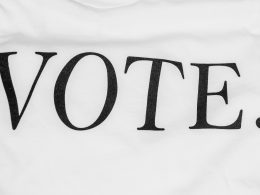As France braces for its upcoming electoral showdown, the political landscape is undergoing a significant shift. French businesses, traditionally cautious and averse to political extremities, are now increasingly gravitating toward Marine Le Pen and her National Rally (Rassemblement National). This pivot reflects a growing discontent and fear regarding the policies advocated by the left, particularly those of the left-wing coalition NUPES (Nouvelle Union Populaire Écologique et Sociale). This article delves into the reasons behind this notable trend, examining the policies and economic climate that have fostered this unexpected alliance.
The Economic Policies of the Left: A Source of Anxiety

The left, especially under the NUPES coalition, has championed policies that prioritize social justice, environmental sustainability, and economic equality. However, these policies have not been without controversy in the business community. Key proposals include:
1. Increased Corporate Taxes
The left has proposed raising taxes on large corporations to fund social programs and reduce income inequality. This policy, while popular among those advocating for greater economic equity, has been met with trepidation from businesses concerned about reduced profit margins and investment incentives.
2. Wealth Redistribution Measures
Policies such as higher wealth taxes and increased regulation on inheritance have further fueled concerns. Business leaders fear these measures could stifle entrepreneurship and discourage private investment.
3. Labor Market Regulations
NUPES has pushed for more stringent labor market regulations, including higher minimum wages and enhanced workers’ rights. While these measures aim to improve working conditions, businesses argue they could lead to higher operational costs and reduced competitiveness in a global market.
4. Environmental Regulations
The coalition’s strong emphasis on environmental protection has led to proposals for stricter regulations on industries, particularly those with significant carbon footprints. While crucial for combating climate change, these regulations are seen as potential burdens on industrial sectors, potentially leading to increased costs and reduced efficiency.
These policies, while aligned with the left’s ideological goals, have created a climate of uncertainty and apprehension among French businesses. The fear of economic disruption and diminished profitability has driven many to reconsider their political allegiances.
Marine Le Pen’s Economic Platform: An Attractive Alternative
Marine Le Pen, leader of the National Rally, has positioned herself as a pragmatic alternative to the left’s economic vision. Her platform, while nationalist and protectionist, offers several appeals to the business community:
1. Tax Cuts and Simplification
Le Pen advocates for lower corporate taxes and a simplified tax code, promising to alleviate the fiscal burdens on businesses and stimulate economic growth. This approach resonates with business leaders seeking to maximize profits and streamline operations.
2. Reduced Regulation
Le Pen has pledged to cut down on what she terms “excessive” regulations, particularly those affecting small and medium-sized enterprises (SMEs). This deregulation is seen as a way to foster a more business-friendly environment, encouraging entrepreneurship and innovation.
3. Protection of French Industries
Emphasizing economic nationalism, Le Pen promises to protect French industries from foreign competition through tariffs and trade barriers. This protectionist stance is appealing to industries struggling to compete with cheaper imports and outsourcing.
4. Immigration Control
While controversial, Le Pen’s stringent immigration policies are presented as a means to protect French jobs and reduce competition in the labor market. Businesses, especially those facing challenges with labor costs, view this as a potential stabilizer for wages and employment rates.
5. Support for Rural and Industrial Area
Le Pen’s focus on reviving rural and industrial areas, often neglected in national policy, has garnered support from businesses operating in these regions. Her promises of investment and development align with the interests of local economies.
The Business Community’s Changing Allegiances
The shift in support from the traditionally centrist or center-right business community to Le Pen’s National Rally marks a significant political realignment. Several factors contribute to this transformation:
1. Economic Pragmatism Over Ideology
For many business leaders, economic interests take precedence over political ideology. The prospect of favorable tax policies, reduced regulation, and protection of domestic industries outweighs concerns about Le Pen’s nationalist rhetoric and far-right associations.
2.Disillusionment with the Traditional Right
The traditional center-right parties, such as The Republicans (Les Républicains), have struggled to present a compelling alternative to the left’s policies. Perceived as being too moderate or ineffective, they have lost favor among business leaders seeking decisive and impactful economic policies.
3. Perception of Stability and Security
Le Pen’s emphasis on national security, immigration control, and law and order appeals to businesses concerned about social stability. In an increasingly volatile world, her promises of stability are reassuring to business interests.
4. Grassroots Support and Local Engagement
Le Pen’s party has effectively engaged with local businesses and communities, building a grassroots network that resonates with small and medium-sized enterprises. This local engagement fosters a sense of trust and mutual benefit.
The Potential Risks and Concerns
Despite the growing support, aligning with Marine Le Pen is not without risks for the business community. Key concerns include:
1. International Relations and Trade Le Pen’s protectionist policies could strain France’s relationships with the European Union and other international partners. Trade barriers and tariffs might lead to retaliatory measures, potentially harming export-dependent industries.
2. Political Instability
Le Pen’s polarizing figure and controversial policies could lead to social unrest and political instability. Businesses thrive in stable environments, and any significant disruption could be detrimental.
3. Reputation and Public Perception
Supporting a far-right candidate carries reputational risks. Businesses risk alienating customers and stakeholders who oppose Le Pen’s views on immigration, national identity, and social issues.
4. Long-term Economic Implications
While short-term gains from tax cuts and deregulation are appealing, the long-term economic impact of protectionist policies and reduced international cooperation could be detrimental. Businesses must weigh immediate benefits against potential future drawbacks.
Conclusion
The courting of Marine Le Pen by French businesses underscores a broader trend of economic pragmatism in the face of ideological discomfort. Faced with policies from the left that threaten their financial stability and operational efficiency, businesses are increasingly turning to Le Pen’s National Rally as a viable alternative. This shift reflects a desire for economic policies that prioritize growth, profitability, and stability over redistributive and regulatory measures.
However, this alliance is fraught with complexities and potential risks. The business community must carefully navigate the fine line between economic pragmatism and the broader social, political, and ethical implications of supporting a far-right candidate. As France heads into a critical electoral period, the evolving dynamics between businesses and political parties will undoubtedly play a significant role in shaping the country’s economic and political future.












